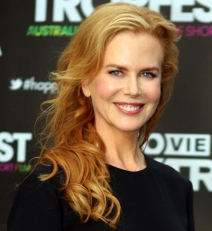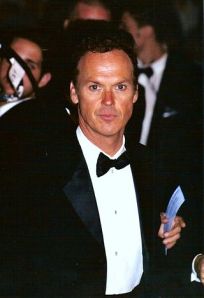“What makes “1,000 Times Good Night” more than a dramatic essay on wartime journalism is Ms. Binoche’s wrenchingly honest portrayal of a woman of conscience driven by a mixture of guilt, nobility and self-importance, reckoning belatedly with her destructive impulses. Her final challenge is a trip with Steph to the Kakuma refugee camp in Kenya to help her daughter gather material for a school project on Africa. On a journey that she is assured involves no risk, a surprise attack on the camp puts them in harm’s way, and Rebecca disobeys orders and compulsively rushes into the melee.
Rebecca has already explained to her daughter that she is gripped by an unassuageable anger. Even when Ms. Binoche smiles, it registers as a shadow of sorrow on the face of someone who has seen too much of the world’s horrors to forget them. She is one of a few screen actors who can convey multiple conflicting emotions in a single glance. With an astonishing transparency, she disappears into the truth of her characters.
That truth can be ugly. When Rebecca is shown crouching over a fresh corpse and aiming her camera, she suggests nothing so much as a ravenous bird of prey.”
There is nothing more fulfilling to see a gifted actor acknowledged for their work! Please read this review and let it inspire you to go see the force of nature of acting, Juliette Binoche in 1,000 Times Good Night



 Recently, I heard a cry: “I don’t know how to prepare!” I was stunned. In our program at the Susan Batson Studio, there is scheduled five times a week a class designed to help the actor learn how to prepare. I looked into the young faces overwhelmed by the difficulty of their art form. I quickly informed them of the last step of my preparation, which was to sit on the toilet having made the creative choice of how the character urinates and defecates. My acting mentor Herbert Berghof told me it was a must for an actor to know this detail. Ah Brave New World, the future of the art smiled, but they certainly did not embrace this information with the passion and profundity that I did when I listened to Herbert Berghof. I questioned if I could inspire a young actor of 2014?
Recently, I heard a cry: “I don’t know how to prepare!” I was stunned. In our program at the Susan Batson Studio, there is scheduled five times a week a class designed to help the actor learn how to prepare. I looked into the young faces overwhelmed by the difficulty of their art form. I quickly informed them of the last step of my preparation, which was to sit on the toilet having made the creative choice of how the character urinates and defecates. My acting mentor Herbert Berghof told me it was a must for an actor to know this detail. Ah Brave New World, the future of the art smiled, but they certainly did not embrace this information with the passion and profundity that I did when I listened to Herbert Berghof. I questioned if I could inspire a young actor of 2014?

